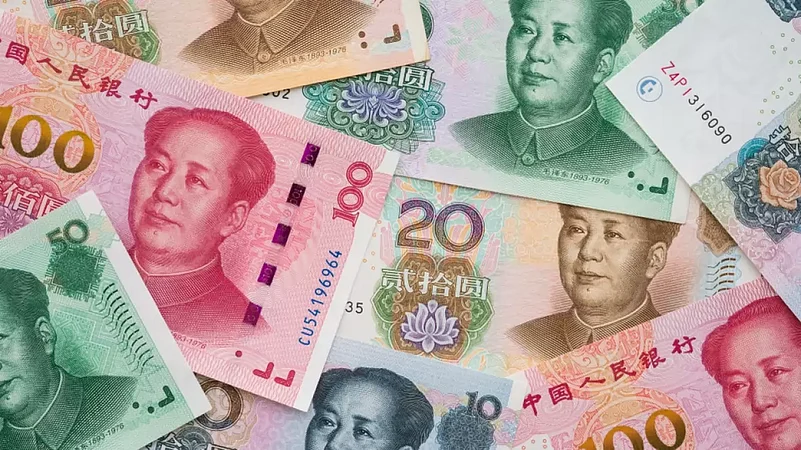China's central bank - People's Bank of China - has asked state-run banks to get prepared to sell dollars and stock up yuan as it steps efforts to stem its currency fall against the greenback, news agency Reuters reported citing sources with knowledge of the matter.
Banks were told last week to inform their offshore branches to review their holdings of offshore yuan and ensure US dollar reserves are ready to be deployed, Reuters reported.
The simultaneous selling of dollars and buying of yuan could put a floor under the Chinese currency, which has lost more than 11 per cent to the dollar so far this year and looks set for its biggest annual loss since 1994, when China unified its official and market rates.
The US dollar has been on a tear against all the major currencies of the world ever since US Federal Reserve took hawkish stance and aggressively took to raise interest rates to tame the stubbornly high inflation which has shot to highest in more than two decades.
China’s central bank has consistently imposed a strong bias to its currency reference rate to help support the yuan. Officials have also issued verbal warnings against speculating on the yuan and increased the cost of shorting the currency, Reuters report added.
The central bank has refrained from raising benchmark rates and has been easing them in an effort to spark growth in an economy that's been dragged down by COVID-19 lockdowns, a real estate crash, and supply chain snags.
The dollar surged to a fresh two-decade high last month after the Federal Reserve raised interest rates by another 75 basis points and signalled more large increases are in the offing.
The Fed's new projections showed its policy rate rising to 4.4 per cent by the end of the year, before peaking at 4.6 per cent in 2023 to curb uncomfortably high inflation. Rate cuts are not expected until 2024.
Fed Chair Jerome Powell, in his press briefing, said there is no painless way to bring inflation down, reiterating that it wants to act aggressively now and keep at it. He added that the Fed's actions are likely to result in slower growth and higher unemployment.
The dollar index hit a fresh 20-year high of 111.63 in the aftermath of the Fed rate hike, and was last up 0.7 per cent at 110.97.
































